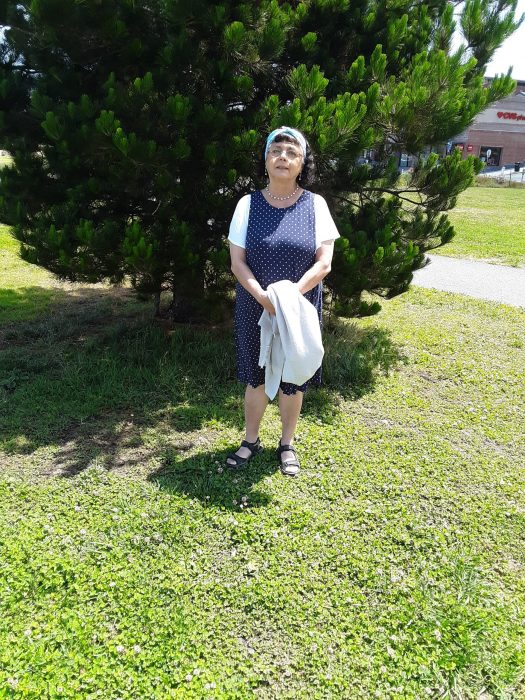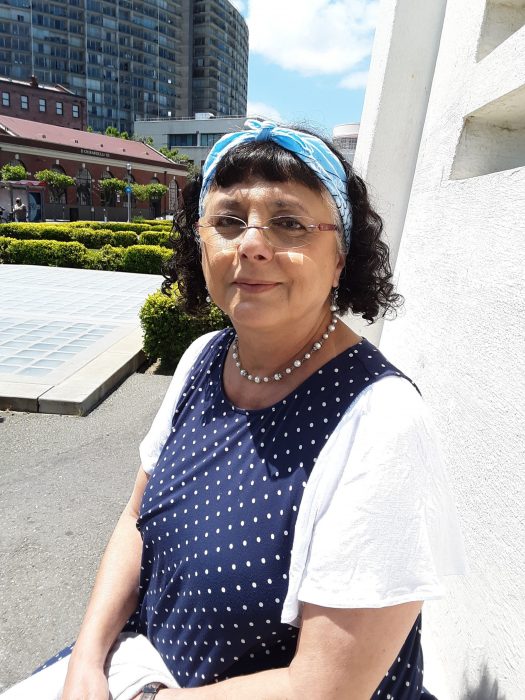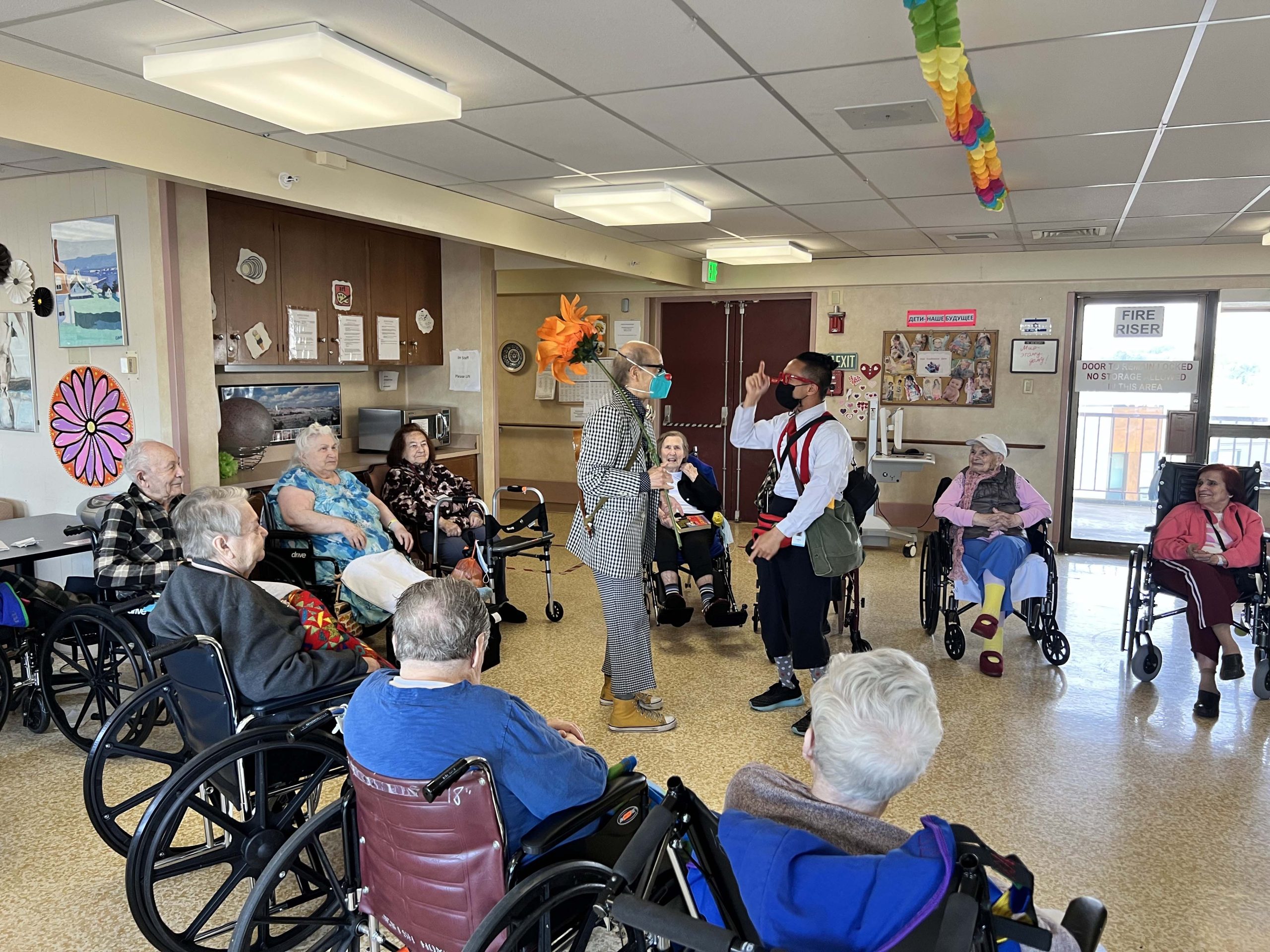Land-use activist fighting SF ‘renovictions’ developed empathy for less fortunate in revolutionary Iran
When the penny Ozzie Rohm dropped into a pond started a ripple, she didn’t know whether she was going to get her wish or not. But she knew she was going to try.
As a young woman studying at university in the years around the 1979 Iranian Revolution, she dreamed of a life without conflict. Now, as a citizen of the United States, she’s trying to preserve the character – and peace – of San Francisco’s neighborhoods.
At 63, her wish is still a work in progress. “It’s all about the safekeeping of San Francisco’s iconic quality of life. It’s diversity of thought, political beliefs and income levels. It’s diminishing.” she said.
Rohm has watched as rising property values sparked rapid development, with high-rise condos and monster homes inserted into neighborhoods of single-family homes and small apartment buildings. She’s not alone in her concern about the enervation of long-staid communities – something that began way before Covid-19 forced a worldwide shut-down.
Neighborhoods being enervated
“Our commercial strips are not as vibrant. Real estate speculators have driven working people with modest means further and further out of the City, ” she said. Reminiscing about her arrival from San Diego in the early eighties, she said. “It was so refreshing to see every neighborhood having its own commercial strip that people could walk to and connect with their merchants and neighbors.”
Today, as co-founder of the San Francisco Land Use Coalition, she spends her time attending City Hall hearings to oppose out-of-scale development as well as “renovictions,” or what opponents call evictions on the false premise of a planned renovation. She’s the expert the San Francisco Tenants Union calls when they’re fighting a case.

It was an encroachment close to home that lit the fires of her activism. In 2015, a developer proposed building a 6,000+ square-foot home within two doors of her own in Noe Valley. It was a huge anomaly, way out of scale compared with other houses in the neighborhood. She was outraged. So were her neighbors. They organized a group – “Protect Noe’s Charm” and later renamed “Noe Neighborhood Council”– to fight it.
“There was some heavy lifting in the beginning,” Rohm said. “We knocked on doors, posted flyers, networked with neighbors, and spread the word via email.”
They also reached out to other land-use complainants at City Hall. It became apparent the concerns were citywide. In February 2018, Rohm teamed with Gary Weiss, head of the Corbett Heights Neighbors association, to form the San Francisco Land Use Coalition.
Meetings were held at Rohm’s house at first, but when they began attracting city leaders and housing and tenants’ rights advocates, they moved to the Noe Valley Library.
Keeping an eye on City Hall
Today, coalition members actively participate in in City Hall hearings on behalf of citizens and weigh in on land-use policies being proposed by elected officials. “We are sentinels of all things involving land use,” she said. And Rohm facilitates workshops on renovictions with the Tenants Union.
In one, she was approached by the conference room gatekeeper, who hadn’t even signed on to the event. The young mother was going through a renoviction that would result in the loss of her garage, included in her original rental agreement. Rohm stepped in, gave her applicable information and ultimately testified – successfully – in her behalf before the Board of Appeals.
Rohm provides information, empowers attendees facing housing disruptions and raises awareness about speculators who buy occupied buildings for a third to half of their value only to kick out the tenants, renovate and sell for multimillion-dollar profits. Our mission is clear, she said: “Partnering to promote equitable growth, protect valuable resources, provide for public input and prevent displacement.”
Covid-19 has impacted everyone, and the coalition is no different.
“We have come closer actually because we now meet on Zoom once every two weeks instead of meeting once a month,” she said. “We join the City Hall hearings using the teleconference lines they provide. Of course, it’s difficult to present our case at these hearings without an overhead projector or our physical presence. We do the best we can with what we’ve got.”
The randomness of birthright
Personally, aside from suffering long lines at the grocery store and hunting for previously available items, she’s doing well. But the downside to community activism deeply concerns her. “It’s harder now to get people’s attention on the goings-on at City Hall.”
Her inclinations toward activism emerged during the tumult of the Iranian Revolution, she said. “That’s when I realized how random it was that I was born into a middle-class family while my friends were born into and lived in abject poverty. That thought never escaped me. I’ve made a vow to stand with the voiceless and less fortunate.”
Rohm, the eldest of three, was raised by two teachers. Her father became the superintendent of schools within Iran’s Ministry of Education, which required constant relocation to different parts of the country. Her mother, who taught until early retirement, was ambitious. Against all odds, she got her law degree in 1953 – one of only seven women to graduate from Tehran University’s law school. She wanted to join the foreign service, but learned that endeavor was not open to her – as a woman and a commoner.
When Rohm family moved from their small town to Tehran, the country’s capital and largest city, she was “elated.”
Her parents were strong supporters of the country’s last king, Shah Mohammad Reza Pahlavi, who came to power in World War II with the help of the U.S. and Britain. He undertook a program of industrial, economic and social modernization, including women’s suffrage. But those West-friendly policies, and his increasingly oppressive rule and corruption in the royal family began making enemies of Iranian nationalists, religious leaders and many in the working class. The resulting Iranian Revolution of 1979 forced him to flee his country.
It was in her teenage years, before the height of turbulence, that Rohm began questioning her parents’ politics.
“The turning point came when I ran into a high school friend with whom I had lost touch,” Rohm said. “After a few hugs, I asked about her older sister whom she idolized. She burst into tears, sobbing uncontrollably. Her sister had been executed by the Shah. This was the touchstone; I realized the wrong-headed thinking of my parents.”
Anti-Shah activism at university
Tehran University, which she entered in 1974 to study Mathematics and Computer Science, was a hot-bed for anti-Shah activism. Year after year, the riots and school closures got worse, she said.
In 1978, at the age of 21, she came to the United States with her 17-year-old sister. “The night we arrived in San Diego, we heard they declared Martial Law in Tehran.”
Rohm picked up her studies at the University of San Diego, eventually earning a bachelor’s degree in Mathematics, with a minor in Computer Science. It was also a place where she found support for her developing political views.
“Many professors were strong proponents of Liberation Theology,” she said. Liberation Theology, in both the Catholic Church and radical Islam, asserts people’s right to challenge domination by imperial powers. “This reinforced my developing leftist values, which I hold today.”
Rohm began her career with a job as a programmer/analyst automating warehouses and factories. Later she filled team leader positions in the biotech and life science sectors. She was also a part of the team that automated the Apple Macintosh factory in Fremont. Her last stop was managing software projects for eCommerce applications. She got lucky when her employer paid for her move from San Diego to the Bay Area and San Francisco, “the city I fell in love with.”
Basic team management in tech work has applications in community activism, Rohm said.
The key to activism: motivating people
“As a software project manager, you know what needs to be done technically and how to get it done with the team you’re given,” she said. You have to do this without relying on positional power. None of the team works for you. You are not their boss. It boils down to how well you can motivate people. “

Rohm and her husband and daughter left the Bay Area for a while. Her daughter enrolled in Concordia University in Montréal in 2008; Rohm and her husband moved there in 2011 and stayed for six years. Rohm became fluent in French.
In 2016, when Rohm’s father was diagnosed with cancer, the family returned to San Francisco, where he still lived.
With the Covid-19 lockdown, taking care of him has not been an easy task. On a bi-weekly basis, she drives him from his nursing home to the hospital to get infusions to treat his cancer. She cannot enter the facility, so waits for him to be escorted outside by an attendant.
When she is done helping and advocating with others on any given day, Rohm dabbles in painting, woodworking and crafting projects.
Walking through a park near Ghirardelli Square, she suddenly pulls the strap of her leather-bound handbag closer and holds it up: “My husband just gave this to me,” she said.
Rohm is celebrating her 20th wedding anniversary with Ted, whom she met 25 years ago when they worked at Genentech. At the time, she was a single mother of a rambunctious five-year-old daughter.





